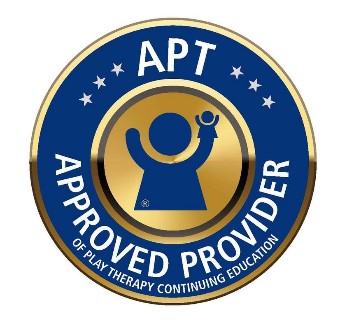We ARE Having Fun Now: Using Tabletop Games in Play Therapy
Experience a plethora of tabletop games and learn how you can use them in your play therapy sessions.
Description
In this in-person, experiential workshop, refresh and re-calibrate your ideas about tabletop games and learn a plethora of new (and old) games you can use in play therapy. Many of the therapeutic powers of play (Schaefer & Drewes, 2014), such as direct teaching, indirect teaching, positive emotions, stress inoculation, stress management, therapeutic relationship, social competence, empathy, creative problem solving, resiliency, moral development, self-regulation, and self-esteem, can be activated by a play therapist trained to use tabletop games. You can use the games introduced in this class to build relationships; explore interpersonal dynamics and intrapersonal issues; and help clients gain insight into maladaptive patterns of thinking, feeling, and behaving. In this workshop, you will acquire knowledge about playing games as a fun way to help clients learn and practice social skills, anger management strategies, stress management skills, self-regulation, and organizational skills.
 8 CE hours (Contact) (4 hours on Play Therapy Skills and Methods, and 4 hours on Play Therapy Special Topics)
8 CE hours (Contact) (4 hours on Play Therapy Skills and Methods, and 4 hours on Play Therapy Special Topics)
APT Approved Provider 99-055

League of Extraordinary Adlerian Play Therapists (LEAPT) has been approved by NBCC as an Approved Continuing Education Provider, ACEP No. 7402. Programs that do not qualify for NBCC credit are clearly identified. League of Extraordinary Adlerian Play Therapists (LEAPT) is solely responsible for all aspects of the programs.
Objectives
At the end of this workshop, you will be able to:
- Describe 2 tabletop games you can use to build relationships with play therapy clients.
- Describe 2 tabletop games you can use to work with play therapy clients on social skills, anger management strategies, and self-regulation skills.
- Explain how playing tabletop games with your play therapy clients can help you observe interpersonal and intrapersonal dynamics.
- Explain how to “pitch” playing tabletop games to your play therapy clients.
- Describe how you can use tabletop games in family play therapy.
- Apply Adlerian conceptualization to explain how using tabletop games can help clients enhance their ability to connect, believe they are capable and that they count, and to increase their willingness to try new things and take risks.
- Describe how tabletop games can be used to help play therapy clients gain insight into maladaptive patterns of thinking, feeling, and behaving.
- Describe how tabletop games can be used to help play therapy clients new, more adaptive patterns of thinking, feeling, and behaving.
Agenda
8:00 am - Start
10:00 am - Break #1 (15 minitues)
12:00 pm - Lunch
2:30 pm - Break #2 (15 minutes)
5:30 - End